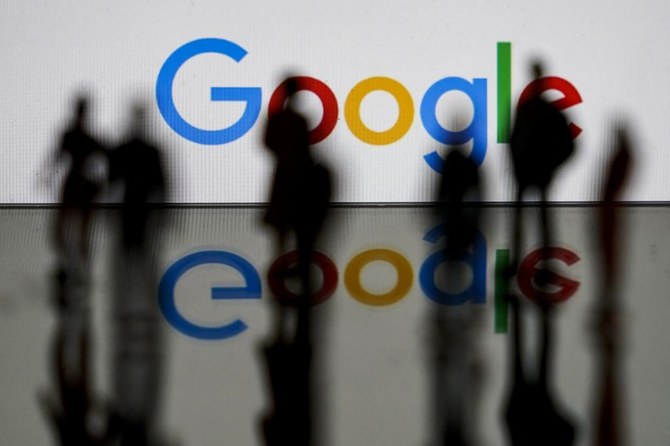Alphabet Inc’s Google told Reuters this week it is developing an alternative to the industry standard method for classifying skin tones, which a growing chorus of technology researchers and dermatologists says is inadequate for assessing whether products are biased against people of color.
At issue is a six-color scale known as Fitzpatrick Skin Type (FST), which dermatologists have used since the 1970s. Tech companies now rely on it to categorize people and measure whether products such as facial recognition systems or smartwatch heart-rate sensors perform equally well across skin tones.
Critics say FST, which includes four categories for “white” skin and one apiece for “black” and “brown,” disregards diversity among people of color. Researchers at the US Department of Homeland Security, during a federal technology standards conference last October, recommended abandoning FST for evaluating facial recognition because it poorly represents color range in diverse populations.
In response to Reuters’ questions about FST, Google, for the first time and ahead of peers, said that it has been quietly pursuing better measures.
“We are working on alternative, more inclusive, measures that could be useful in the development of our products, and will collaborate with scientific and medical experts, as well as groups working with communities of color,” the company said, declining to offer details on the effort.
The controversy is part of a larger reckoning over racism and diversity in the tech industry, where the workforce is more white than in sectors like finance. Ensuring technology works well for all skin colors, as well different ages and genders, is assuming greater importance as new products, often powered by artificial intelligence (AI), extend into sensitive and regulated areas such as health care and law enforcement.
Companies know their products can be faulty for groups that are under-represented in research and testing data. The concern over FST is that its limited scale for darker skin could lead to technology that, for instance, works for golden brown skin but fails for espresso red tones.
Numerous types of products offer palettes far richer than FST. Crayola last year launched 24 skin tone crayons, and Mattel Inc’s Barbie Fashionistas dolls this year cover nine tones.
The issue is far from academic for Google. When the company announced in February that cameras on some Android phones could measure pulse rates via a fingertip, it said readings on average would err by 1.8 percent regardless of whether users had light or dark skin.
The company later gave similar warranties that skin type would not noticeably affect results of a feature for filtering backgrounds on Meet video conferences, nor of an upcoming web tool for identifying skin conditions, informally dubbed Derm Assist.
Those conclusions derived from testing with the six-tone FST.
’STARTING POINT’
The late Harvard University dermatologist Dr. Thomas Fitzpatrick invented the scale to personalize ultraviolet radiation treatment for psoriasis, an itchy skin condition. He grouped the skin of “white” people as Roman numerals I to IV by asking how much sunburn or tan they developed after certain periods in sun.
A decade later came type V for “brown” skin and VI for “black.” The scale is still part of US regulations for testing sunblock products, and it remains a popular dermatology standard for assessing patients’ cancer risk and more.
Some dermatologists say the scale is a poor and overused measure for care, and often conflated with race and ethnicity.
“Many people would assume I am skin type V, which rarely to never burns, but I burn,” said Dr. Susan Taylor, a University of Pennsylvania dermatologist who founded Skin of Color Society in 2004 to promote research on marginalized communities. “To look at my skin hue and say I am type V does me disservice.”
Technology companies, until recently, were unconcerned. Unicode, an industry association overseeing emojis, referred to FST in 2014 as its basis for adopting five skin tones beyond yellow, saying the scale was “without negative associations.”
A 2018 study titled “Gender Shades,” which found facial analysis systems more often misgendered people with darker skin, popularized using FST for evaluating AI. The research described FST as a “starting point,” but scientists of similar studies that came later told Reuters they used the scale to stay consistent.
“As a first measure for a relatively immature market, it serves its purpose to help us identify red flags,” said Inioluwa Deborah Raji, a Mozilla fellow focused on auditing AI.
In an April study testing AI for detecting deepfakes, Facebook Inc. researchers wrote FST “clearly does not encompass the diversity within brown and black skin tones.” Still, they released videos of 3,000 individuals to be used for evaluating AI systems, with FST tags attached based on the assessments of eight human raters.
The judgment of the raters is central. Facial recognition software startup AnyVision last year gave celebrity examples to raters: former baseball great Derek Jeter as a type IV, model Tyra Banks a V and rapper 50 Cent a VI.
AnyVision told Reuters it agreed with Google’s decision to revisit use of FST, and Facebook said it is open to better measures.
Microsoft Corp. and smartwatch makers Apple Inc. and Garmin Ltd. reference FST when working on health-related sensors.
But use of FST could be fueling “false assurances” about heart rate readings from smartwatches on darker skin, University of California San Diego clinicians, inspired by the Black Lives Matter social equality movement, wrote in the journal Sleep last year.
Microsoft acknowledged FST’s imperfections. Apple said it tests on humans across skin tones using various measures, FST only at times among them. Garmin said due to wide-ranging testing it believes readings are reliable.
Victor Casale, who founded makeup company Mob Beauty and helped Crayola on the new crayons, said he developed 40 shades for foundation, each different from the next by about 3 percent, or enough for most adults to distinguish.
Color accuracy on electronics suggest tech standards should have 12 to 18 tones, he said, adding, “you can’t just have six.”
Google searches for new measure of skin tones to curb bias in products
https://arab.news/bcq4j
Google searches for new measure of skin tones to curb bias in products

- Google developing new measure for classifying skin tones in attempt to combat biases against people of color.
- Companies know their products can be faulty for groups that are under-represented in research and testing data.
Israel revokes order to cut AP live Gaza video feed

JERUSALEM: Israel walked back its decision to shut down an Associated Press live video feed of war-torn Gaza on Tuesday, following a protest from the US news agency and concern from the White House.
Israel’s Communications Minister Shlomo Karhi said he had revoked an earlier order that accused the AP of breaching a new ban on providing rolling footage of Gaza to Qatar-based satellite channel Al Jazeera.
“I have now ordered to cancel the operation and return the equipment to the AP agency,” Karhi said in a statement, after Washington called on Israel to reverse the move.
“We’ve been engaging directly with the government of Israel to express our concerns over this action and to ask them to reverse it,” a White House spokesperson said.
Karhi’s original order earlier Tuesday said communications ministry inspectors had “confiscated the equipment” of AP on orders approved by the government “in accordance with the law.”
The AP said Israeli officials had seized its camera and broadcasting equipment at a location in the Israeli town of Sderot that overlooks the northern Gaza Strip.
In a statement issued after the order the news agency said it “decries in the strongest terms” the move by the Israeli government.
Reacting after Israeli officials ordered the equipment to be returned, it added: “While we are pleased with this development, we remain concerned about the Israeli government’s use of the foreign broadcaster law and the ability of independent journalists to operate freely in Israel.”
AP said Al Jazeera was among thousands of clients that receive live video feeds from the agency.
Israeli opposition leader Yair Lapid said the government “went crazy.”
“This is not Al Jazeera, this is an American media outlet that has won 53 Pulitzer Prizes,” he wrote on X, formerly Twitter.
AFP global news director Phil Chetwynd said Israel’s initial order was “an attack on press freedom.”
“The free flow of verified information and images from reliable sources is vital in the current highly-charged context,” he said in a statement.
“We would urge the authorities to immediately reverse this decision and to allow all journalists to work freely and without hindrance.”
The United Nations said it was “shocking.”
“The Associated Press, of all news organizations, should be allowed to do its work freely and free of any harassment,” said Stephane Dujarric, spokesman for UN Secretary-General Antonio Guterres.
Qatar-based Al Jazeera was taken off the air in Israel this month after Prime Minister Benjamin Netanyahu’s government voted to shut it down over its coverage of the Gaza war.
Al Jazeera’s Jerusalem offices were shuttered, its equipment confiscated and its team’s accreditations pulled.
The AP said communications ministry officials arrived at its location in Sderot on Tuesday afternoon and seized the equipment.
It said officials had handed the AP a piece of paper, signed by the communications minister, alleging it was violating the country’s new foreign broadcast law.
The ministry later confirmed the incident.
It said the US news agency regularly took images of Gaza from the balcony of a house in Sderot, “including focusing on the activities of IDF (army) soldiers and their location.”
“Even though the inspectors of the Ministry of Communications warned them that they were breaking the law and that they should cut off Al Jazeera from receiving their content and not transfer a broadcast to Al Jazeera, they continued to do so,” it said.
The AP said it had been broadcasting a general view of northern Gaza before its equipment was seized, and that the live feed has generally shown smoke rising over the Palestinian territory.
“The AP complies with Israel’s military censorship rules, which prohibit broadcasts of details like troops movements that could endanger soldiers,” the agency added.
The Foreign Press Association in Israel said it was “alarmed” by the confiscation of the AP’s equipment, calling it “a slippery slope.”
It denounced Israel’s “dismal” record on press freedom during the Gaza war, and called the move against AP “outrageous censorship.”
In the 2024 press freedom index by media watchdog Reporters Without Borders (RSF), Israel ranked 101st out of 180 countries — dropping four positions from the previous year.
The Gaza war broke out after Hamas’s October 7 attack on Israel, which resulted in the deaths of more than 1,170 people, mostly civilians, according to an AFP tally based on Israeli official figures.
Hamas also took 252 hostages, 124 of whom remain in Gaza including 37 the army says are dead.
Israel’s retaliatory offensive against Hamas has killed at least 35,647 people in Gaza, also mostly civilians, according to the Hamas-run territory’s health ministry.
Palestinian detainees ‘tortured’ in Israeli hospitals, BBC investigation finds

- Patients are kept shackled to hospital beds, blindfolded, naked, forced to wear diapers
- Probe recalls report alleging violation of detainees’ health rights as act of revenge
LONDON: A BBC investigation has revealed that Palestinian detainees from Gaza are “routinely tortured” in Israeli hospitals.
According to medical workers and whistleblowers interviewed by the broadcaster, detainees are kept shackled to hospital beds, blindfolded, sometimes naked, and forced to wear diapers.
Some in need of surgery and other medical procedures are denied painkillers, causing “an unacceptable amount of pain.”
Testimonies indicated that critically-ill patients held in makeshift military facilities are denied proper treatment due to public hospitals’ reluctance to transfer and treat them.
The Israeli army has denied the allegations, asserting that detainees at the facility in question were treated “appropriately and carefully.”
Yossi Walfisch, the head of the country’s Medical Ethics Board, said in a letter: “Terrorists are given proper medical treatment with the aim of keeping restraints to a minimum, and while maintaining the safety of the treating staff.”
The investigation detailed various episodes of mistreatment, which were described in some testimonies as “a deliberate act of revenge.”
In one instance, a detainee had his leg amputated after being denied treatment for an infected wound.
In another, a doctor refused to administer painkillers to an elderly patient while treating an infected amputation wound.
Senior anesthesiologist Yoel Donchin confirmed that patients at Sde Teiman hospital were kept blindfolded and permanently shackled to their beds, while forced to wear diapers instead of being allowed to use toilets.
Donchin argued that the practice could cause long-term nerve damage and admitted to performing surgical procedures on handcuffed patients due to a lack of alternatives.
Despite complaints from medical staff, only minor changes have been implemented.
An army spokesperson said that violence against detainees was “absolutely prohibited” and promised to investigate the allegations.
The revelations recall a report in February by Physicians for Human Rights Israel, which described Israel’s civilian and military prisons as “an apparatus of retribution and revenge,” violating detainees’ human rights, particularly their right to health.
In March, following a similar BBC investigation into alleged abuse and torture by the Israeli army at Nasser Hospital in Khan Younis, the UK government called for an “investigation and explanation” into the allegations.
Media watchdog ‘welcomes’ arrest warrants for Hamas and Israeli leaders

- ICC’s action is a promise to end impunity for the deaths of journalists, says Committee to Protect Journalists
LONDON: The Committee to Protect Journalists welcomed the International Criminal Court’s announcement on Monday that it was seeking arrest warrants for leaders of both Hamas and Israel.
Israeli Prime Minister Benjamin Netanyahu, Defense Minister Yoav Gallant, and Hamas leaders Yahya Sinwar, Mohammed Diab Ibrahim Al-Masri, and Ismail Haniyeh might face prosecution for war crimes and crimes against humanity.
“The ICC’s application for arrest warrants for crimes against humanity in Israel and Palestine recognizes atrocities committed against civilians,” said CPJ CEO Jodie Ginsberg.
“The civilian deaths include an unprecedented number of journalists killed since Oct. 7. The ICC’s action is a promise for an end to the impunity that has historically plagued the killing and persecution of those who write the first draft of history.”
Over 100 journalists and media workers have been killed since the beginning of the conflict last October, the vast majority of them in Gaza by Israeli forces.
CPJ reported that the conflict has claimed the lives of more journalists in three months than have ever been killed in a single country over an entire year since record-keeping began, underscoring the tragic toll this war has had on journalists.
The watchdog, along with corroborating investigations by Reuters, AFP, and Human Rights Watch, has documented at least three instances of journalists killed by Israeli forces that involved deliberate targeting.
An additional 10 cases may also involve deliberate targeting, which, according to international law, could constitute war crimes.
CPJ has urged the ICC to investigate these killings and called on Israel to grant investigators unrestricted access to Gaza, highlighting a disturbing pattern of systematic killings of Palestinian journalists that have consistently gone unpunished.
The announcement of potential arrest warrants for Netanyahu was met with strong reactions.
Netanyahu called the decision “a moral outrage of historic proportions,” while US President Joe Biden rejected the ICC’s application altogether, adding that “there’s no equivalence between Israel and Hamas.”
Meta Oversight Board set to rule on ‘genocide’ video case, two others

- Meta submitted cases as part of goal to create policy on criminal allegations based on nationality
- Decision to help Meta better navigate critical questions at a crucial time, board spokesperson told Arab News
LONDON: The Meta Oversight Board announced on Tuesday that it is reviewing three cases, including one involving a user accusing Israel of committing “genocide” and another concerning a Facebook comment in Arabic.
Meta, which submitted the cases as part of its review system aimed at creating a policy on criminal allegations based on nationality, said it removed the posts for breaching its Hate Speech Community Standards.
The first case involves a user’s reply on Threads, featuring a video that includes accusations of “genocide” and claims that “Israelis are criminals.”
The other two cases involve a December speech in which a user called all Russians and Americans “criminals” and a recent post in which a user stated that “all Indians are rapists.”
An Oversight Board spokesperson told Arab News: “Tensions in the region, and increasingly around the world, are dominating the discussion online.
“It’s vitally important that when looking at these issues, Meta gets the balance right and works to protect safety, without unduly limiting the ability of people to speak out about the abuses they see or the frustration they experience.”
The spokesperson added that while the board cannot review every appeal, it selects those of critical importance to public discourse “to help Meta better navigate these critical questions at a crucial time.”
Meta said the three posts were removed after human review for “targeting people with criminal allegations based on nationality.”
Despite its decision, Meta referred the cases to the Oversight Board to address the challenge of handling criminal allegations directed at people based on their nationality, as they might be interpreted as attacks on a nation’s policies.
The board’s decision to review these cases comes as social media platforms have seen an uptick in violent, hateful, and misleading content since the start of Israel’s war on Gaza last October.
The Oversight Board reported a nearly 2,000 percent increase in appeals from the region in the first three weeks after Oct. 7, with many complaints about content inciting violence and promoting hate speech.
The moderators have called for public comments addressing the platform’s hate speech policy in relation to users’ ability to speak out against state actions during times of conflict and Meta’s human rights responsibilities in relation to content targeting users based on nationality.
They also requested insights into potential criteria for determining whether a user is targeting a concept or institution rather than people based on nationality.
In the coming weeks, the board members will deliberate on the cases.
Facebook and its parent company Meta have previously been accused of deliberately censoring pro-Palestine content. Human Rights Watch stated last December that Meta routinely engages in “six key patterns of undue censorship” of pro-Palestine posts.
Recently, the board introduced a new 30-day expedited review mechanism and will rule on whether the pro-Palestinian phrase “from the river to the sea” is considered “acceptable” speech.
In April, the board overturned Meta’s decision to leave up a Facebook post claiming that Hamas originated from the population of Gaza, comparing them to a “savage horde,” leading Meta to take the post down.
Report: Meta approved anti-Muslim political ads in India

- ICWI and Eko found Meta’s system failed to detect prohibited content in most cases
- Indian election sees surge in anti-Muslim, Hindu supremacist sentiment
LONDON: Tech giant Meta approved political advertisements on its platforms inciting violence and hate speech during India’s general election, a report released on Monday revealed.
The investigation, conducted by non-sectarian diasporic organization India Civil Watch International and corporate watchdog Eko, found that Meta, the parent company of Facebook and Instagram, allowed AI-manipulated political ads that spread disinformation and incited religious violence, particularly targeting Muslims.
The report found that Meta’s system failed to prohibit a series of inflammatory ads designed to mimic real-life scenarios, uploaded by ICWI and Eko.
The ads, submitted to Meta’s ad library, contained slurs towards Muslims in India, such as “let’s burn this vermin” and “Hindu blood is spilling, these invaders must be burned.”
Another ad featured Hindu supremacist language and false claims about political leaders, including an opposition leader allegedly wanting to “erase Hindus from India” and calling for their execution.
According to the report, all of the adverts “were created based upon real hate speech and disinformation prevalent in India, underscoring the capacity of social media platforms to amplify existing harmful narratives.”
Out of 22 ads submitted in English, Hindi, Bengali, Gujarati and Kannada, 14 were approved by Meta, while a further three were approved after minor tweaks that did not alter the overall provocative messaging.
Only five ads were rejected for violating Meta’s community standards on hate speech and violence.
The ads, which largely targeted Muslims, were immediately removed after approval by ICWI and Eko.
The organizations accused Meta of profiting from hate speech and failing to uphold its pledge to prevent AI-generated or manipulated content from spreading on its platforms during the Indian election.
Campaign spending for India’s elections, the largest and longest in the world, is estimated to reach $16 billion.
The report also claims that the approved ads violated India’s election rules, which ban election-related content 48 hours before polling begins and during voting.
Meta, which requires vetting approval for accounts running political ads, had already faced controversy during this year’s Indian elections.
A previous report by ICWI and Eko found that surrogate or “shadow” accounts aligned with political parties paid vast sums of money to disseminate unauthorized political ads on platforms.
Some approved accounts for running political ads were even up for sale in public Facebook groups with tens of thousands of members.
Many of these real ads endorsed Islamophobic tropes and Hindu supremacist narratives.
The tech giant has struggled for years with the spread of Islamophobic content on its platforms, raising concerns about Meta’s ability to enforce its policies and control the situation amid rising anti-Muslim sentiment in India.



















